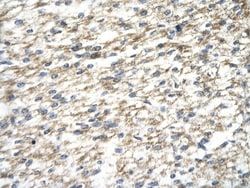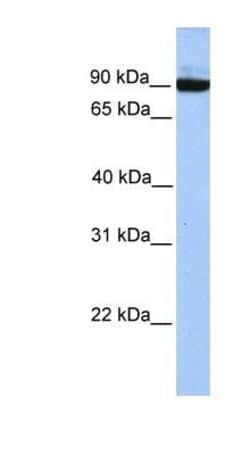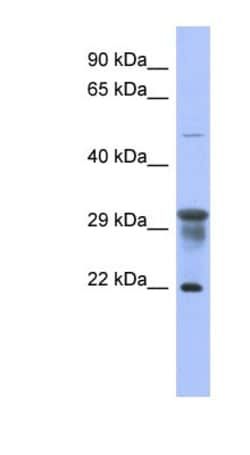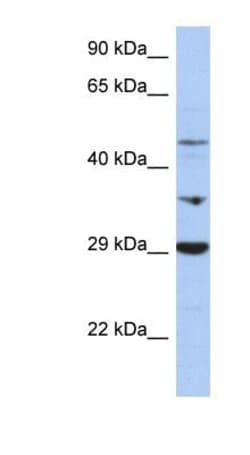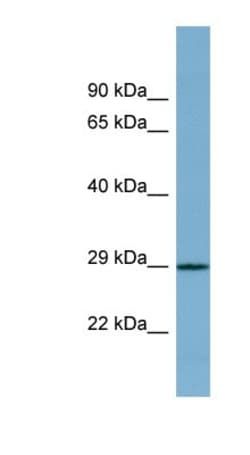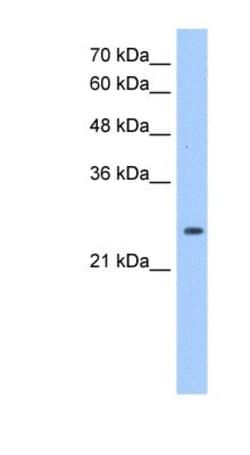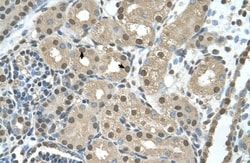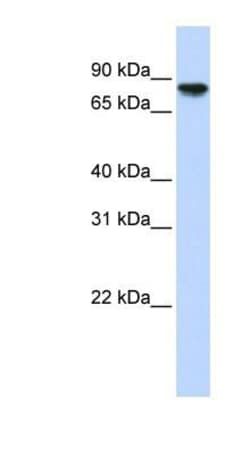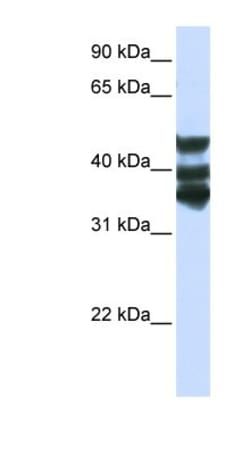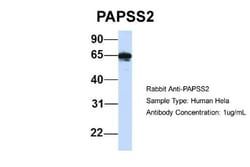Ribosome maturation protein SBDS Antibody, Novus Biologicals™
Manufacturer: Novus Biologicals
Select a Size
| Pack Size | SKU | Availability | Price |
|---|---|---|---|
| Each of 1 | NBP155131-Each-of-1 | In Stock | ₹ 43,387.50 |
NBP155131 - Each of 1
In Stock
Quantity
1
Base Price: ₹ 43,387.50
GST (18%): ₹ 7,809.75
Total Price: ₹ 51,197.25
Antigen
Ribosome maturation protein SBDS
Classification
Polyclonal
Conjugate
Unconjugated
Formulation
PBS, 2% Sucrose with 0.09% Sodium Azide
Gene Alias
FLJ10917, ribosome maturation protein SBDS, SDSCGI-97, Shwachman-Bodian-Diamond syndrome, Shwachman-Bodian-Diamond syndrome protein, SWDS
Host Species
Rabbit
Molecular Weight of Antigen
28 kDa
Quantity
100 μL
Research Discipline
metabolism
Gene ID (Entrez)
51119
Target Species
Human, Mouse, Rat, Bovine, Canine, Equine, Guinea Pig, Rabbit, Zebrafish
Form
Purified
Applications
Western Blot, Immunohistochemistry, Immunohistochemistry (Paraffin)
Concentration
1 mg/ml
Dilution
Western Blot 1.0 ug/ml, Immunohistochemistry 1:10-1:500, Immunohistochemistry-Paraffin 4-8 ug/ml
Gene Accession No.
Q9Y3A5
Gene Symbols
SBDS
Immunogen
Synthetic peptide directed towards the N terminal of human SBDS (NP_057122). Peptide sequence LQTHSVFVNVSKGQVAKKEDLISAFGTDDQTEICKQILTKGEVQVSDKER.
Purification Method
Protein A purified
Regulatory Status
RUO
Primary or Secondary
Primary
Reconstitution
Centrifuge the vial of lyoph antibody at 12,000 x g for 20 seconds. Add 100μL of distilled water. Vortex followed by centrifuge again to pellet the solution.Final concentration is 1mg/mL in PBS buffer.
Content And Storage
Store at 4°C short term. Aliquot and store at -20°C long term. Avoid freeze-thaw cycles.
Isotype
IgG
Related Products
Description
- Ribosome maturation protein SBDS Polyclonal specifically detects Ribosome maturation protein SBDS in Human samples
- It is validated for Western Blot, Immunohistochemistry, Immunohistochemistry-Paraffin.

